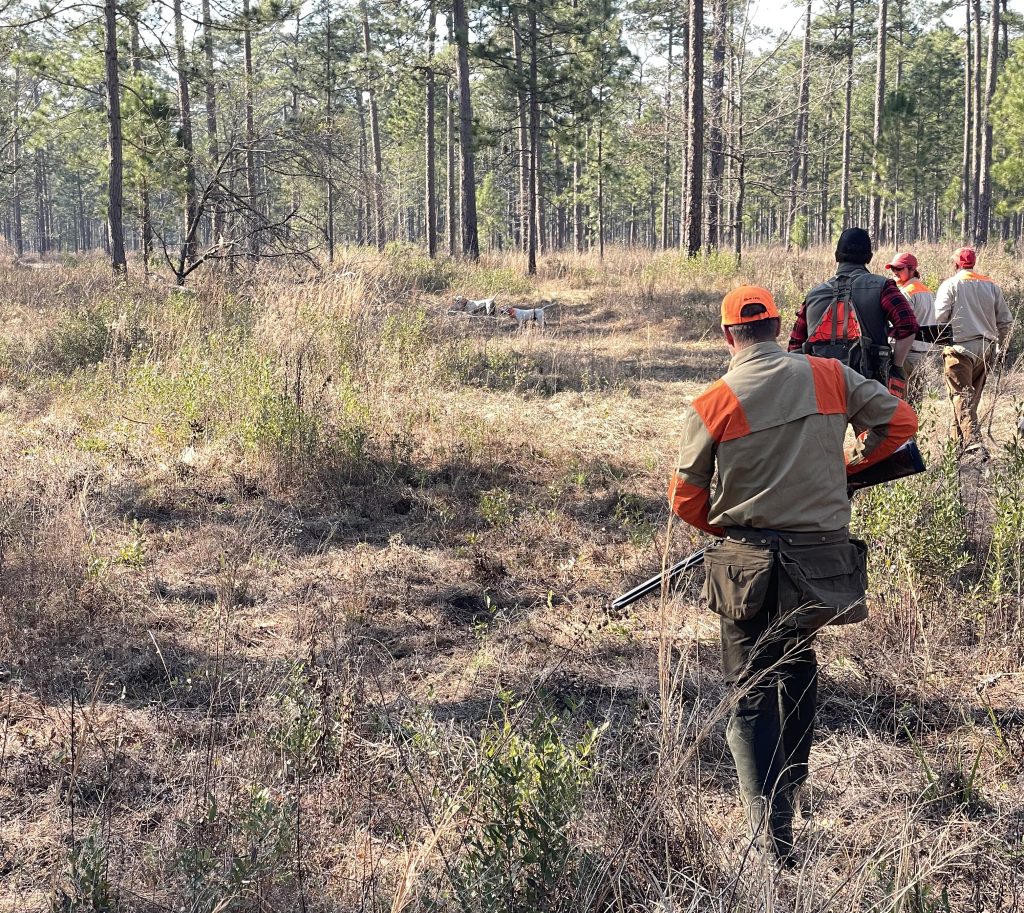
In February, I went on a quail hunt in southern Georgia. The trip was full of firsts. It was my first quail hunt, my first visit to south Georgia and my first time riding a horse for six hours each day of the hunt.
As I was packing, I contacted Amy Ray of Sisterhood Outdoors, who lives in Georgia and hunts, for advice on what shoes to pack. She immediately responded with, “Snake boots! It’s going to start warming up while we are there.” Well, that wasn’t what I expected for an answer. I was concerned about what shoes were best for riding the horse.
As I travel around the country, I realize how fortunate I am to live in Northeast Ohio, where we don’t have a lot of animals that want to hurt us. According to the Ohio Department of Natural Resources, “Only three species of snakes in Ohio (the copperhead and the massasauga and timber rattlesnakes) are venomous. None of these snakes are common.”
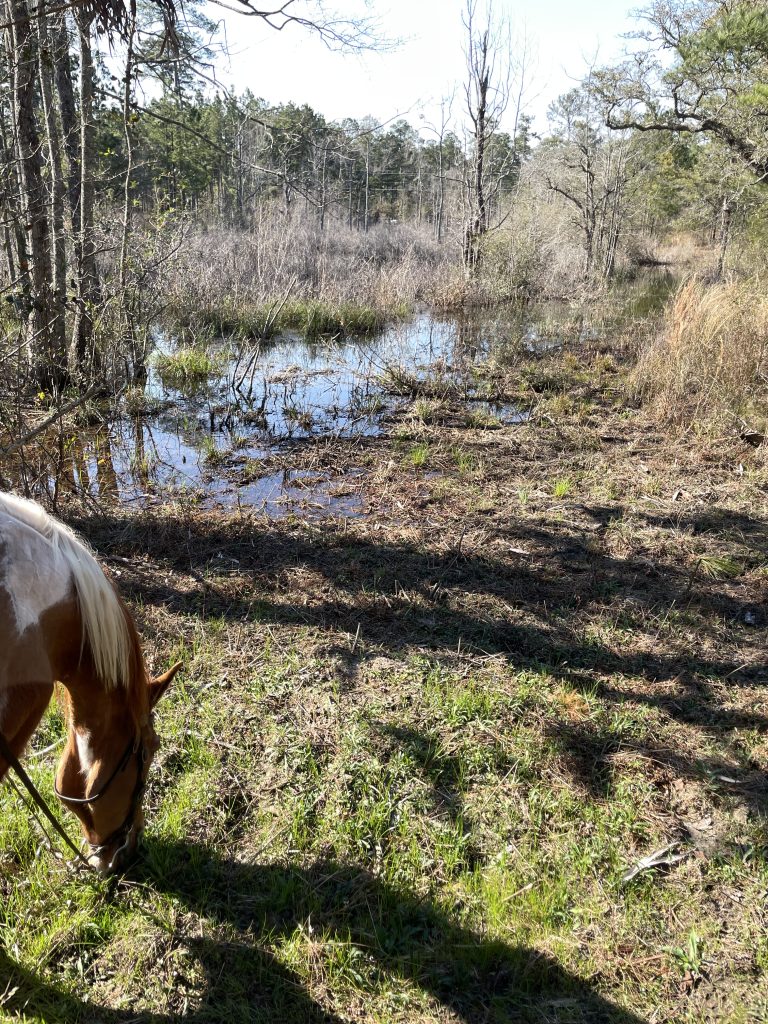
Those snakes don’t even make it up my way. However, since I find myself more and more in situations where snakes are a concern, I decided to look into getting myself a pair of snake boots.
A “snake boot” search on the internet took me down a bottomless rabbit hole. Instead, I decided to reach out to an expert, Jordan Anderson, a Rocky product designer, for some help. He kindly answered the following questions:
What is a snake boot?
Snake boots prevent a snake’s fang from contacting the wearer’s body.
What are snake boots made of that prevents the snake’s fangs from penetrating the boot?
Very tightly knit, wound fibers and threads make a boot snake proof.
Are specific snake boots better for different terrains or areas of the country?
The outsole would ultimately be the determining factor. Deep lugs are more suitable for heavy rugged terrain, while lower lug depths/smooth surfaces are better for marshy or sandy conditions. At Rocky, we test all of our snake boots with puncture tests, so the uppers would not specifically be a factor regarding the terrain.
Is there such a thing as lightweight snake boots?
Yes. The outsole would be a significant factor in the total weight. Lighter outsole = lighter boot.
We are heading to Tennessee and Georgia; which Rocky boot do you suggest for that area in May?
Rocky Outback GORE-TEX Waterproof Snake Boot RKS0550 would be a great boot for this area.
Is there anything else I should look for when purchasing a snake boot?
If the snake boot has a zipper, check the area behind it. We also place snake resistant materials in this area to maximize protection.
Back to my hunt. On day one, before we even mounted our horses, we warned to watch out for snakes. With the weather warming they were beginning to move. Let’s just say I was very observant when choosing a spot for my potty break.
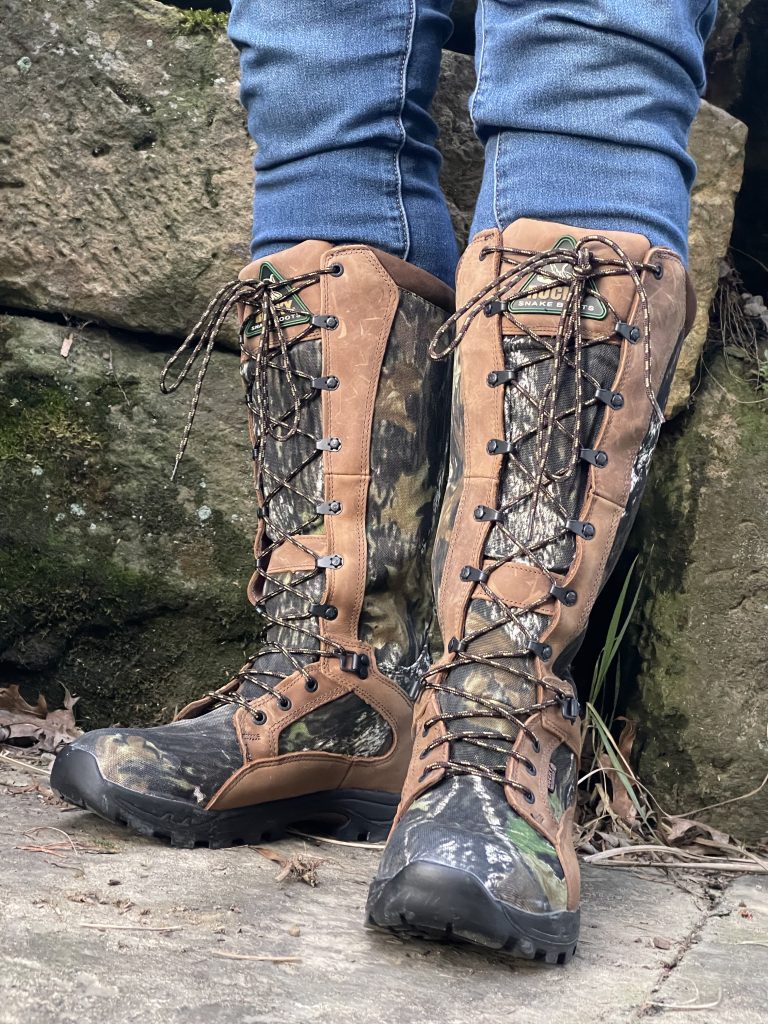
Did we encounter any snakes? Only one, and the retriever spotted it first, thank goodness. Will I research animals that may want to hurt me before I travel on my next outdoor trip? You bet I will. Am I getting myself a pair of boots? Already did.
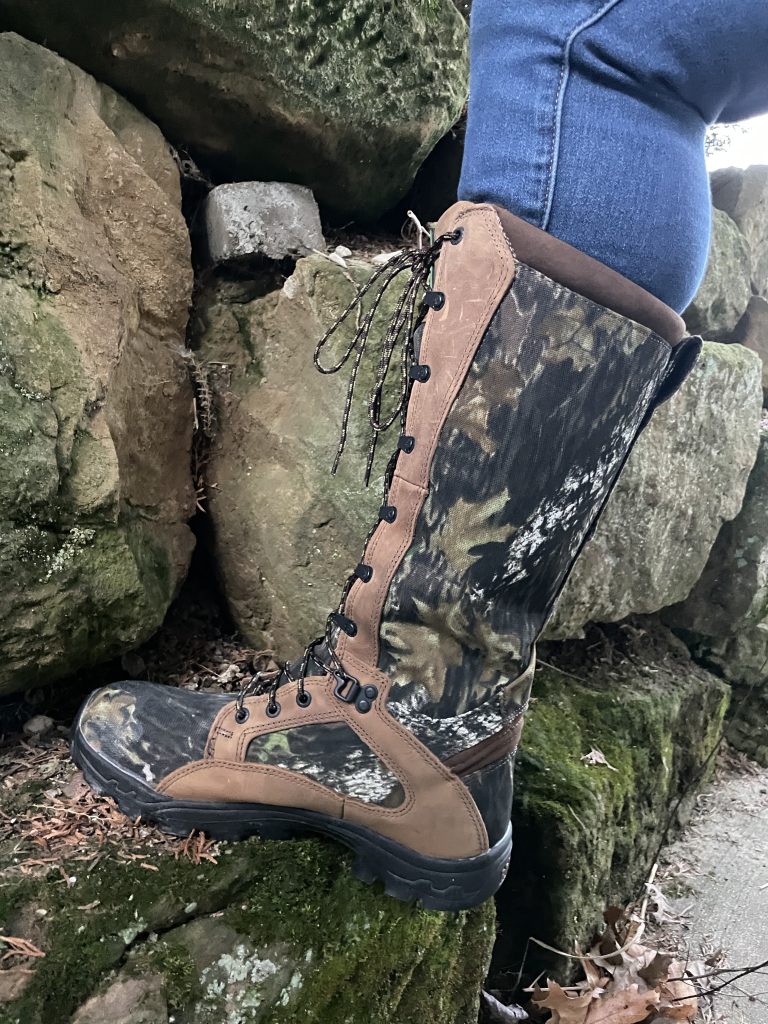
So far, I’ve only had time to wear them around the yard and walking in the woods, but the Rocky Prolight Hunting Waterproof Snake Boots are comfy, support my ankles, and considering they are tie boots, are easy to get off and on. Now I’m ready!
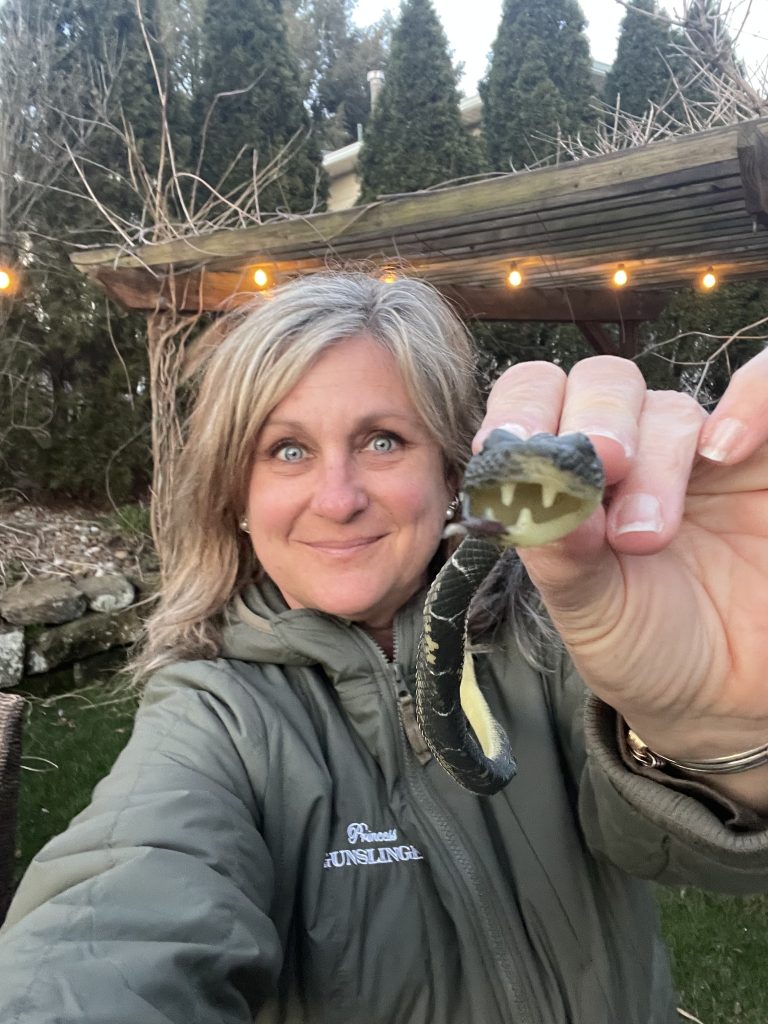

6 Responses
And I thought water moccasins were a type of shoe for traversing swampy areas.
Good info. Had never heard of snake boots.
Water moccasins have a well-earned reputation for having a nasty attitude. I’m more leery of them than rattlers… 🙁
There are also products called gaiters that strap around the lower leg (covers from ankle to the knee) with a loop under the sole of whatever boots you have.
I don’t blame you for the snake boots, but snakes are usually less of a threat than people think. Most snakes try to avoid us. I spend a lot of time outdoors. I rarely see snakes.
Rocky boots are comfortable, affordable, and they work great until they fall apart within a year. I’d love to find some good boots that can last longer than a year.
A few hours of horseback riding will induce some serious soreness if you aren’t used to it, especially if you aren’t very limber.
In AZ we have rattlers. 3-4 years ago while hiking with my brother and a friend, they called out “Rattler!” I couldn’t hear it, and I was leading! I immediately stopped, the snake being about 4 ft. away. I decided right there to get protection. Snake boots aint cheap. I ended up with some puncture resistance industrial “hikers” and some hard shell gaiters. Do-able. Last year, finally hearing aids.
Great choice for snake boots! If you live and hunt in the south you will need them.